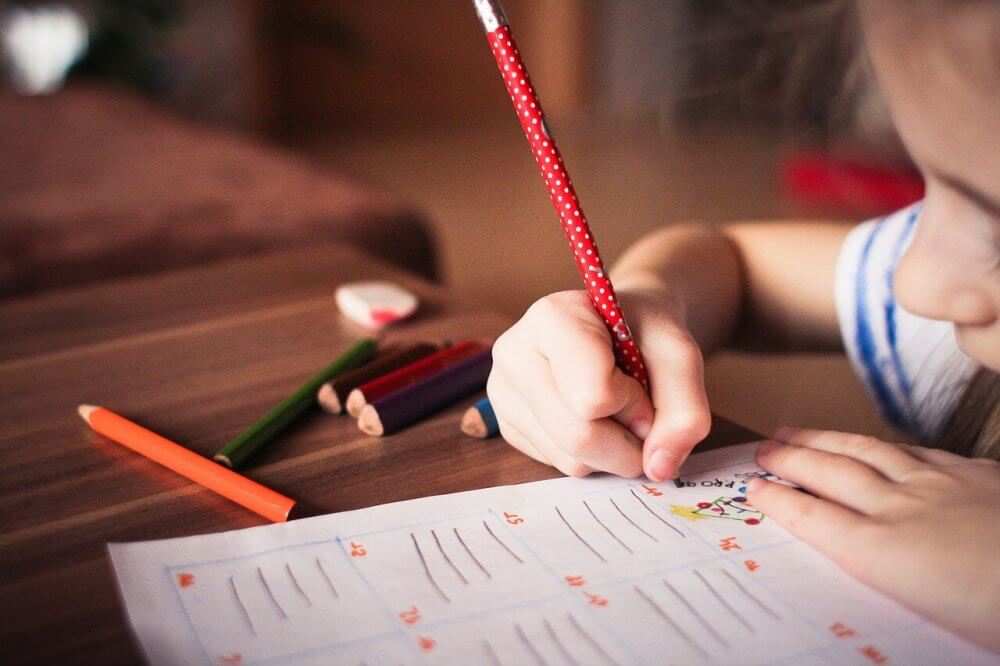Creative Writing Hacks for Primary School Students
Published on 11 May 2018 by Edu Aid | Language | Study and Exams Tips & Guide

Is your child struggling with creative writing? Getting your child to excel in creative writing is definitely not a walk in the park, especially if his English standard is just not at that level yet. Regardless, creative writing is going to be a necessary assessment for your child, so here are some hacks you may try on him.
Collect a Notebook of Nice Phrases
 We all know that nice phrases work great in any piece of writing. The expression “a walk in the park” gains extra bonus points for your child’s writing if it can be used in place of just “easy”. However, it is important to use this expression correctly. If your child were to write – “Going to school by myself is like walking to the park”; he no longer makes sense. This, however, is a very common mistake among Primary school students. If he can’t use his expressions correctly, sometimes it’s better that he doesn’t use them at all.
We all know that nice phrases work great in any piece of writing. The expression “a walk in the park” gains extra bonus points for your child’s writing if it can be used in place of just “easy”. However, it is important to use this expression correctly. If your child were to write – “Going to school by myself is like walking to the park”; he no longer makes sense. This, however, is a very common mistake among Primary school students. If he can’t use his expressions correctly, sometimes it’s better that he doesn’t use them at all.
You can buy a book of nice phrases if you can find one around. However, to memorize phrases from a book is just downright boring. Moreover, he won’t know exactly how to use these phrases properly in his writing. Therefore, the better method would be to get him to read widely and start collecting nice phrases in his notebook. If you come across any nice phrase yourself, you may show it to him in its original context so that he knows how the expression can fit into the sentence. After that, get him to practice writing more, with his notebook by his side. The more he uses these phrases correctly, the more he remembers them. He won’t need to put in much effort memorizing them.
[Read: 6 Ways To Improve Your Writing Skills]
Train his Creative Thinking
It is very common to experience mental block when doing a creative writing exercise or assessment. You can help your child overcome his problems with mental block by training him to think creatively! It may help if he is exposed to various medium of storytelling – theatre productions, TV shows, books, etc. On top of these exposure, creative conversations help too. For example, if you are shopping with your child at the mall and you pass by a busker, you may start a conversation with your child about the busker – “who do you think he is?”; “why do you think he is doing this?”; “what do you think he will do with the money in the box”, etc. All these questions start your child thinking up scenarios. The more he is used to thinking up fictitious scenarios, the easier his creative juice can flow comes assessment time.
Use Proper Conversational English
If you have not started by now, it is time to check on your own conversational English. Are you speaking to your child with proper grammar? This is extremely important. Children who are not used to using proper grammar in his conversational English will struggle with putting properly phrased words down on paper. Likely, his creative writing piece would be peppered with far too many grammar mistakes. These are points-losing mistakes that are totally unnecessary! You can drill your child through long hours of grammar homework, but the best thing to do now is to make sure your child is using proper grammar in his sentence structures while talking to you. If your child talks to you in proper English, there is no need to worry about his grammar in his creative writing.
Insert Humor
 No kidding, but humor works. Everywhere! Humor softens hearts, eases awkward situations; makes people laugh. And laughter is medicine! Your examiner is a fellow human, and wouldn’t mind a bit of laughter to get through an entire stack of papers to mark and sleepless nights. Teach your child to be as human, and as humorous in his writing. If your child can insert some elements of humor in his writing, some of his unintended grammatical or spelling mistakes may even be overlooked. No one told you this? Try it!
No kidding, but humor works. Everywhere! Humor softens hearts, eases awkward situations; makes people laugh. And laughter is medicine! Your examiner is a fellow human, and wouldn’t mind a bit of laughter to get through an entire stack of papers to mark and sleepless nights. Teach your child to be as human, and as humorous in his writing. If your child can insert some elements of humor in his writing, some of his unintended grammatical or spelling mistakes may even be overlooked. No one told you this? Try it!
Conclusion
In conclusion, creative writing can’t be forced. If your child doesn’t have a humorous side in him, don’t force it. You can help him think of funny scenarios, and slowly feed him ideas of how to make his story funny. However, by the end of the day, every child is different in his strengths. Find out your child’s strength and work on it. If he is doing very well in his collection of nice phrases, it’s best to work on that to excel in his creative writing. If, at this point in time your child is turned off by any hint of practicing writing, just start more conversations with him! Don’t force your child to write because it will only make him hate it more. Alternatively, you may hire an English tutor to motivate your child to write well.





